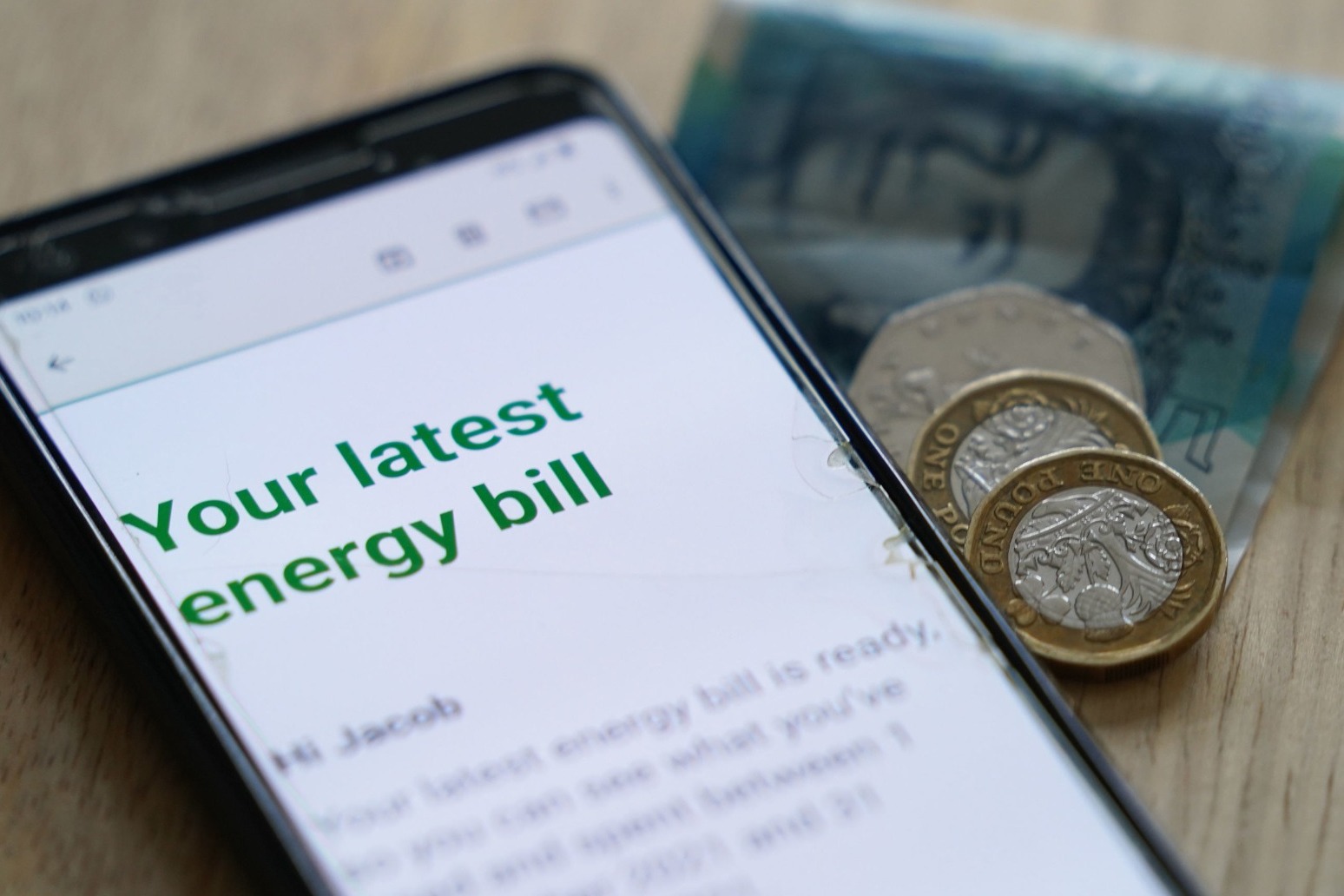
Energy bills fall to lowest point in two years
Ofgem is lowering its price cap from April
The average household energy bill is to fall to its lowest point in two years from April after Ofgem lowered its price cap in response to wholesale prices.
The regulator announced it is dropping its price cap by 12.3% from the current £1,928 for a typical dual fuel household in England, Scotland and Wales to £1,690, a drop of £238 over the course of a year or around £20 a month.
Ofgem said the drop would see energy prices reach their lowest level since Russia’s invasion of Ukraine in February 2022, which caused a spike in an already turbulent wholesale energy market, driving up costs for suppliers and customers.
Ofgem chief executive Jonathan Brearley said: “This is good news to see the price cap drop to its lowest level in more than two years – and to see energy bills for the average household drop by £690 since the peak of the crisis – but there are still big issues that we must tackle head-on to ensure we build a system that’s more resilient for the long term and fairer to customers.
“That’s why we are levelising standing charges to end the inequity of people with prepayment meters, many of whom are vulnerable and struggling, being charged more up-front for their energy than other customers.
“We also need to address the risk posed by stubbornly high levels of debt in the system, so we must introduce a temporary payment to help prevent an unsustainable situation leading to higher bills in the future. We’ll be stepping back to look at issues surrounding debt and affordability across market for struggling consumers, which we’ll be announcing soon.
“These steps highlight the limitations of the current system – we can only move costs around – so we welcome news that the Government is opening the conversation on the future of price regulation, seeking views on how standard energy deals can be made more flexible so customers pay less if using electricity when prices are lower.
“But longer term we need to think about what more can be done for those who simply cannot afford to pay their energy bills even as prices fall. As we return to something closer to normality we have an opportunity to reset and reframe the energy market to make sure it’s ready to protect customers if prices rise again.”
Ofgem announced it is allowing a temporary additional payment of £28 a year, or £2.33 a month, to make sure suppliers have enough funds to support customers who are struggling.
This will be added to the bills of customers who pay by direct debit or standard credit and is to be partly offset by the end of an allowance worth £11 per year that covered debt costs related to the Covid pandemic.
Prepayment meter customers will not have to pay the extra charge, as many do not build up the same level of debt as credit customers because they top up as they go, Ofgem said.
The regulator also confirmed plans to set a permanent solution to prepayment customers paying higher standing charges, which was removed by the Government’s temporary Energy Price Guarantee.
Ofgem said the solution must be funded by bill-payers rather than taxpayers, to maintain fairness, meaning prepayment customers will save around £49 per year while direct debit customers will pay £10 more each year.
Citizens Advice chief executive Dame Clare Moriarty said: “It’s good news that the cost of energy is falling, but the impact of sky-high prices will be felt for years to come.
“We know more than five million people live in households behind on their energy bills and, with the price of energy still far higher than just three years ago, many people will struggle to pay off these debts.
“The Government promised a new plan for energy bill support by April 2024, but will miss its own deadline. And the withdrawal of cost-of-living payments this spring will make it so much harder for many of those already finding it difficult to make ends meet. Without action, people will face a cycle of winter crises year after year.”
Simon Francis, co-ordinator of the End Fuel Poverty Coalition, said: “Even after this latest change to the price cap, energy prices remain 60% higher than they were before the energy bills crisis began.
“Three years of staggering energy bills have placed an unbearable strain on household finances up and down the country. Household energy debt is at record levels, millions of people are living in cold damp homes and children are suffering in mouldy conditions.
“Everybody can see what is happening in Britain’s broken energy system and it is time for politicians to unite to enact the measures needed to end fuel poverty. This includes cross-party consensus on a long-term plan to help all households upgrade their homes and short-term financial support for households most in need.”
Published: by Radio NewsHub